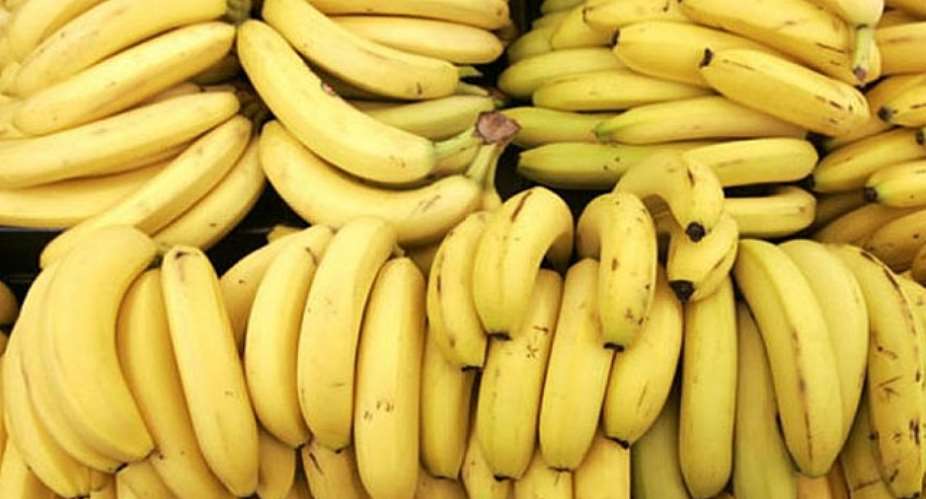Thanks to popular low-carb diets, these carb-heavy healthy foods have been unfairly blacklisted. But there's no need to be scared of spuds or ban bananas. We're setting the record straight-dig in guilt-free!
Corn
Corn gets a bad rap because it's frequently found in packaged, processed food that can be void of nutrients. But real, straight-up corn is a healthy whole grain, points out Jessica Levinson, RD, a New York City-based nutritionist. 'It's a good source of fiber, vitamin C, and the antioxidants lutein and zeaxanthin, which promote healthy vision,' she says. Grill corn on the cob, heat up popcorn or top a salad with fresh kernels.
Bananas
It's bananas to think that nature's perfect portable snack could have ever gotten labeled as bad for you, just because of its carbs and sugar content. 'The fruit is a good source of vitamin B6, manganese, potassium, and fiber,' says Henderson. And when slightly unripe, bananas are also a good source of slimming resistant starch. Snack on them whole, pop them into smoothies, or even use them as a substitution for fats in baking.
Breakfast cereal
There's no need to shun a bowlful of flakes. Many cereals are made with whole grains these days, so they can be a healthy way to start your day. Just check the label: Look for a short ingredients list with whole grains at the top and at least 3 grams of fiber and no more than 10 grams of sugar per serving.
White potatoes
We know we're supposed to limit white bread, white rice and white pasta. Somehow potatoes got swept up in that ban, too. 'White potatoes are actually very good for you,' says Christian Henderson, RD, a New York City-based nutritionist. 'They're a great source of potassium and vitamin C, and they have almost 4 grams of fiber with the skin on-15 percent of your recommended daily allowance.' As an alternative to the classic sour cream-slathered baked potato, try cutting potatoes into cubes, tossing them with olive oil and rosemary, and roasting until crisp.
Sourdough Bread
You don't always have to pick whole wheat. Traditional sourdough is made through a process of fermentation, so it contains beneficial bacteria known as probiotics. 'When these good bacteria are present in the bread-making process they help break down some of the gluten, so sourdough may actually be easier on gluten intolerant people than other gluten-containing breads,' Henderson says. 'They also lower your insulin response and make some nutrients more readily available for digestion.'
Green peas
Sure, they're higher in carbs and sugar than non-starchy vegetables-they're even on some low carb diets' 'foods to avoid' lists. 'But peas are a great source of phytonutrients with anti-inflammatory and antioxidant activity,' Henderson says. One in the spotlight is coumestrol, which has been shown to potentially protect against stomach cancer, Henderson adds. A cup of cooked green peas also boasts more than 7 grams of filling fiber. Eat them straight up or in soups or salads, or add dried peas to a trail mix.





 Lay KPMG audit report on SML-GRA contract before Parliament – Isaac Adongo tells...
Lay KPMG audit report on SML-GRA contract before Parliament – Isaac Adongo tells...
 Supervisor remanded for stabbing businessman with broken bottle and screwdriver
Supervisor remanded for stabbing businessman with broken bottle and screwdriver
 NDC watching EC and NPP closely on Returning Officer recruitment — Omane Boamah
NDC watching EC and NPP closely on Returning Officer recruitment — Omane Boamah
 Your decision to contest for president again is pathetic – Annoh-Dompreh blasts ...
Your decision to contest for president again is pathetic – Annoh-Dompreh blasts ...
 Election 2024: Security agencies ready to keep peace and secure the country — IG...
Election 2024: Security agencies ready to keep peace and secure the country — IG...
 People no longer place value in public basic schools; new uniforms, painting wil...
People no longer place value in public basic schools; new uniforms, painting wil...
 'Comedian' Paul Adom Otchere needs help – Sulemana Braimah
'Comedian' Paul Adom Otchere needs help – Sulemana Braimah
 Ejisu by-election: Only 33% of voters can be swayed by inducement — Global InfoA...
Ejisu by-election: Only 33% of voters can be swayed by inducement — Global InfoA...
 Minority will expose the beneficial owners of SML, recover funds paid to company...
Minority will expose the beneficial owners of SML, recover funds paid to company...
 Prof. Opoku-Agyemang has ‘decapitated’ the NPP’s strategies; don’t take them ser...
Prof. Opoku-Agyemang has ‘decapitated’ the NPP’s strategies; don’t take them ser...
